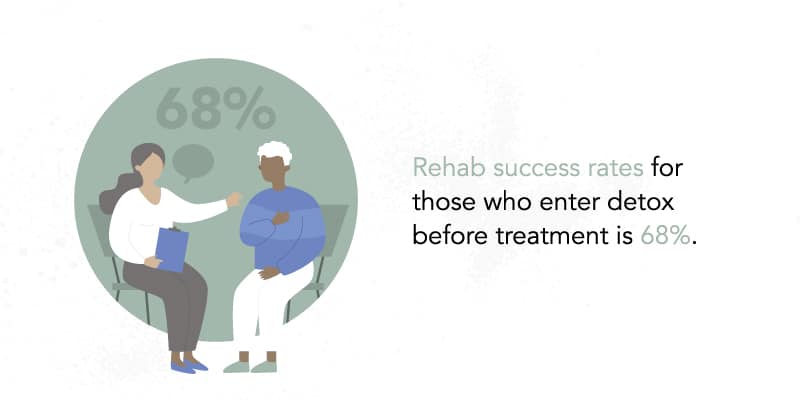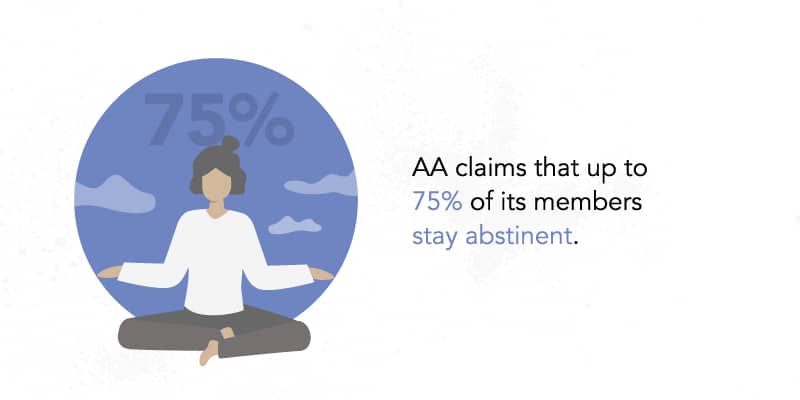A Guide on How to Detox from Alcohol
How to Detox from Alcohol: Introduction
Detoxifying from alcohol is a pivotal step for people seeking recovery from alcohol addiction. The duration of this journey and how to detox from alcohol varies from person to person. These depend on several factors.
In this article, we’ll explore the timeline of alcohol detox and its stages. We’ll also consider what people can expect during their recovery.
Are you or a loved one considering getting help for alcohol addiction? Understanding how to detox from alcohol is a crucial first step.

What is Alcohol Detox?
Alcohol detoxification occurs when a person stops or significantly reduces their alcohol consumption. It’s a physiological and psychological adjustment period. During this time, the body rids itself of the substance.
The body, accustomed to alcohol’s presence, must recalibrate its systems to function without it.
Alcohol detox is often referred to as withdrawal management. This is the initial phase of recovery from alcohol addiction. It involves the body’s natural process of eliminating alcohol from the system.
How to Detox from Alcohol: Distinctive Features of Alcohol Detox
Symptoms of Withdrawal
- Tremors
- Sweating
- Anxiety
- Nausea
- Seizures
Timeline

Complexity
- Malnutrition
- Liver damage
- Mental health concerns
Medication-Assisted Detox
Medications are sometimes used to manage alcohol withdrawal symptoms safely. Examples include benzodiazepines or antipsychotics. This approach is less common in detox from other substances.
Psychological Impact
- Anxiety
- Depression
- Cravings
Risk of Relapse
The risk of relapse during or after alcohol detox is relatively high. Comprehensive treatment plans that include therapy and support are vital to address the underlying causes of addiction and reduce the risk of relapse.
Long-Term Recovery
Other Substances
In contrast, detox from other substances may have its unique characteristics and challenges. Factors that play a role in how detox differs from one substance to another include:
- The type of substances
- Their effects on the body
- The withdrawal process
How to Detox from Alcohol: Alcohol Half-Life and Duration in the System
Alcohol Content
Individual Metabolism
Liver Function
The liver is responsible for metabolizing alcohol. If the liver is healthy, it can process alcohol more efficiently. Chronic alcohol use can damage the liver and slow down metabolism.
Hydration
Food Consumption
Average Alcohol Half-Life
How to Detox from Alcohol: Duration of Alcohol in the System
- The total amount consumed
- Individual differences
- The sensitivity of testing
How Long Alcohol Can Be Detected in the Body
- Breath: Alcohol can be detected in a person’s breath for up to 24 hours after drinking.
- Urine: Alcohol can be detected in urine for 12 to 48 hours. This depends on factors like alcohol content and individual metabolism.
- Blood: Alcohol is detectable in the bloodstream for about 12 hours after drinking.
- Hair: In some cases, hair follicle tests can detect alcohol consumption for up to 90 days.

How to Detox from Alcohol at Home: Safety Tips and Precautions
Seek a Medical Assessment First
- Assess your specific situation
- Evaluate the risk of severe withdrawal
- Recommend the most appropriate course of action
Gradual Reduction
Stay Hydrated and Nourished
Medication-Assisted Treatment (MAT)
Understanding and Demystifying MAT
Avoid Triggers
Support System
Monitor Vital Signs
Be Aware of Symptoms
Professional Backup
Long-Term Treatment
How to Detox from Alcohol: Home Detox vs. Professional Treatment
Choosing between at-home alcohol detoxification vs. medical detox is a critical decision. It hinges on various factors and the potential risks of withdrawal.
Home Detox Considerations
Mild to Moderate Alcohol Use Disorder (AUD)
Consultation with a Healthcare Provider
Monitoring Vital Signs
- Blood pressure
- Heart rate
- Temperature
Professional Treatment Considerations
Severe Alcohol Use Disorder
- Have a severe alcohol use disorder
- Have experienced severe withdrawal symptoms in the past
- Have underlying health conditions
Risk of Delirium Tremens (DTs)
Dual Diagnosis
There may be co-occurring mental health issues or other substance use disorders. Comprehensive care may be vital in such cases.
A Closer Look at Dual Diagnosis
Medication-Assisted Treatment (MAT)
MAT may be necessary to manage severe withdrawal symptoms or cravings. This treatment should be administered under medical supervision.
Lack of a Supportive Environment
Uncertainty About Self-Detox
How to Detox from Alcohol: Statistics on Alcohol Detox and Withdrawal
Prevalence of Alcohol Use Disorder (AUD)
Alcohol-Related Deaths
Alcohol Withdrawal Incidence
Severity of Withdrawal Symptoms
Hospitalization Rates
Mortality Rate for Delirium Tremens
Readmission Rates
Success of Medication-Assisted Treatment (MAT)

How to Detox from Alcohol: Common Withdrawal Symptoms During Alcohol Detox
Anxiety and Restlessness
Nausea and Vomiting
Gastrointestinal symptoms such as nausea and vomiting are common during withdrawal. They can contribute to dehydration and nutritional deficiencies.
Sweating and Clamminess
Tremors (Shakes)
Insomnia and Sleep Disturbances
Hallucinations
Seizures
Delirium Tremens (DTs)
DTs are a severe form of alcohol withdrawal. This condition is a medical emergency and requires immediate treatment.
- Hallucinations
- Severe confusion
- Fever
- Agitation
Mood Swings and Depression
- Mood swings
- Irritability
- Depression
Cravings
A Closer Look at Alcohol Detox and Withdrawal
Potential Health Risks of Alcohol Detox
Severe Withdrawal Symptoms
Some people have a history of heavy and prolonged alcohol use. The withdrawal symptoms can be severe and even life-threatening. Symptoms like seizures, delirium tremens, and cardiac complications can occur.
Dehydration and Electrolyte Imbalance
Worsening of Co-Existing Health Conditions
Emotional and Psychological Distress
Risk of Relapse
Delayed or Inadequate Treatment
Nutritional Deficiencies
Cardiovascular Complications
Risk of Injury
Rebound Effect
How to Detox from Alcohol: Dietary Guidelines
Hydration
Balanced Diet
- Fruits
- Vegetables
- Lean proteins
- Whole grains
- Healthy fats
Complex Carbohydrates
Protein-Rich Foods
Vitamins and Minerals
Small, Frequent Meals
Avoid Caffeine and Sugar
Healthy Fats
Avoid High-Risk Foods
Consult a Nutritionist
How to Detox from Alcohol: Duration of Alcohol Detox
Acute Detox Phase
- Anxiety
- Tremors
- Nausea
- Sweating
- Cravings
Subacute Phase
- Mood swings
- Sleep disturbances
- Cravings
Post-Acute Withdrawal Syndrome (PAWS)
Individual Variation
- Duration and intensity of alcohol use
- Presence of co-occurring disorders
- Use of medication-assisted treatment
Continued Recovery

How to Detox from Alcohol at Ethos Wellness
Clinical Approach
Ethos Wellness adopts a clinical approach to alcohol detox. We ensure that your physical and psychological well-being are closely monitored and supported. We prioritize your safety throughout the detox process
Psychodynamically-Informed Care
Holistic Care
Individualized Treatment
Different Therapy Modalities
- Cognitive-behavioral therapy (CBT)
- Dialectical behavior therapy (DBT)
- Motivational enhancement therapy (MET)
- Family therapy
Contact Ethos Wellness Today
Reach out to us today for more information about our available treatment options.
Resources
- https://www.healthline.com/health/how-long-does-alcohol-stay-in-your-system#urine-vs-breath-test
- https://www.niaaa.nih.gov/alcohols-effects-health/alcohol-topics/alcohol-facts-and-statistics/alcohol-use-disorder-aud-united-states-age-groups-and-demographic-characteristics
- https://www.niaaa.nih.gov/alcohols-effects-health/alcohol-topics/alcohol-facts-and-statistics/alcohol-related-emergencies-and-deaths-united-states
- https://www.ncbi.nlm.nih.gov/books/NBK482134/
- https://www.ncbi.nlm.nih.gov/pmc/articles/PMC4733453/#:~:text=Studies%20on%20hospitalized%20patients%20have,conditions%5B5%2D7%5D.
- https://www.samhsa.gov/medications-substance-use-disorders
- https://onlinelibrary.wiley.com/doi/10.1111/add.16297
- https://www.webmd.com/mental-health/addiction/alcohol-withdrawal-symptoms-treatments
- https://www.webmd.com/mental-health/addiction/alcohol-use-disorder-nutrition-recovery


